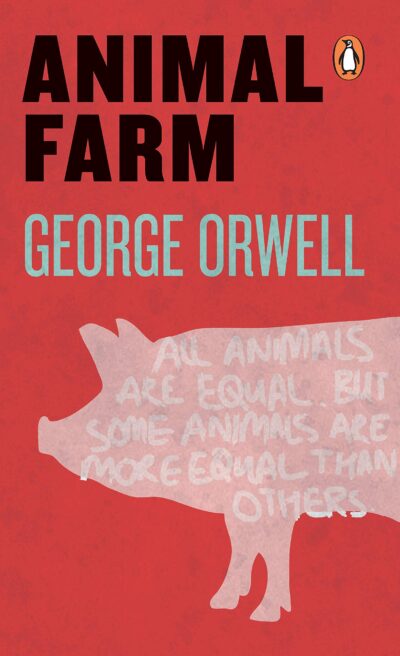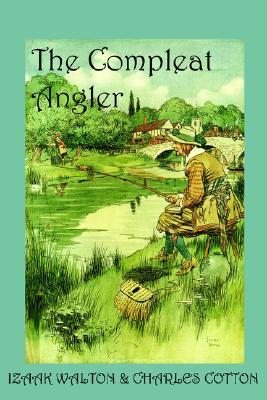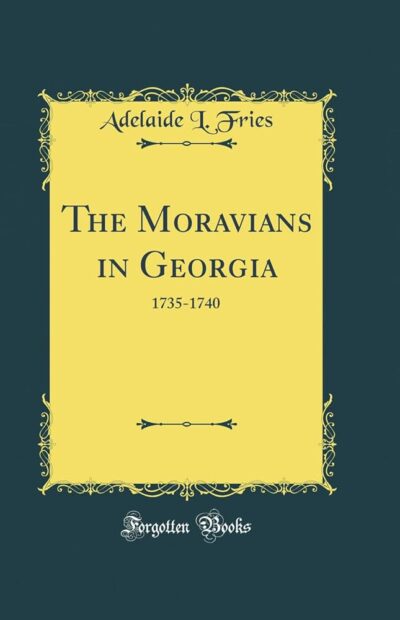54 Results in the "Non-Fiction" category
Biography & Memoir (434)
Books Like (8)
Business & Finance (26)
Children’s Fiction (203)
Dystopian (16)
Education & Learning (9)
Fantasy (1174)
fashion (1)
Fiction (4409)
Health & Wellness (21)
Historical Fiction (504)
Horror (159)
Literary Fiction (776)
Novel (229)
Others (106)
Philosophy (128)
Poetry (208)
Politics & History (131)
Posts (64)
Psychology (46)
Religion & Spirituality (1)
Romance Novel (535)
Science & Technology (82)
Science Fiction (204)
Self-Help & Personal Development (99)
Thriller / Mystery (858)
Travel & Adventure (2)
True Crime (55)
view (96)
Young Adult (284)
-
Chapter
Chapter X
 The chapter depicts the passage of time on Animal Farm, where most original Rebellion participants have died or been forgotten. Only Clover, Benjamin, Moses, and the pigs remain as living links to the past. The farm has expanded with new animals who know little of the Rebellion's history, while the original ideals have eroded. Napoleon and the pigs live luxuriously, contrasting sharply with the other animals' hard lives. The windmill, once promised to bring modern comforts, now serves only to enrich the…
The chapter depicts the passage of time on Animal Farm, where most original Rebellion participants have died or been forgotten. Only Clover, Benjamin, Moses, and the pigs remain as living links to the past. The farm has expanded with new animals who know little of the Rebellion's history, while the original ideals have eroded. Napoleon and the pigs live luxuriously, contrasting sharply with the other animals' hard lives. The windmill, once promised to bring modern comforts, now serves only to enrich the…-
23.3 K • Ongoing
-
-
 Chapter VIII – The Compleat Angler begins with a lively discussion between Piscator and Venator about the Pike, a fish considered both fearsome and fascinating. This predatory creature is likened to a tyrant ruling the still waters, a stark contrast to the noble and widely admired Salmon. Unlike many other fish, the Pike leads a solitary existence, preferring isolation over company, and exhibits a brutal hunger that knows few limits. It devours not only smaller fish but also those of its own kind,…
Chapter VIII – The Compleat Angler begins with a lively discussion between Piscator and Venator about the Pike, a fish considered both fearsome and fascinating. This predatory creature is likened to a tyrant ruling the still waters, a stark contrast to the noble and widely admired Salmon. Unlike many other fish, the Pike leads a solitary existence, preferring isolation over company, and exhibits a brutal hunger that knows few limits. It devours not only smaller fish but also those of its own kind,…-
103.7 K • Ongoing
-
-
Chapter
Chapter VIII – Conclusion
 Chapter VIII draws readers deeper into the evolving vision of Henri Bergson, where reason is no longer limited to logic alone. Instead, two distinct types of order—geometric and vital—are laid side by side, each revealing a different face of reality. Geometric order, with its straight lines and symmetry, offers a world of prediction and control. But this view, while useful in science and mathematics, cannot fully account for life’s complexity. Vital order, by contrast, is fluid, expressive, and…
Chapter VIII draws readers deeper into the evolving vision of Henri Bergson, where reason is no longer limited to logic alone. Instead, two distinct types of order—geometric and vital—are laid side by side, each revealing a different face of reality. Geometric order, with its straight lines and symmetry, offers a world of prediction and control. But this view, while useful in science and mathematics, cannot fully account for life’s complexity. Vital order, by contrast, is fluid, expressive, and…-
57.6 K • Ongoing
-
-
Chapter
Chapter VIII
 The chapter opens with the animals grappling with the aftermath of the executions, as some recall the Sixth Commandment's prohibition against killing. Clover seeks clarification and discovers the commandment now includes the phrase "without cause," justifying the pigs' actions against alleged traitors. This manipulation of memory highlights the erosion of the original revolutionary principles, as the pigs rewrite history to maintain control. The animals' confusion underscores their vulnerability to…
The chapter opens with the animals grappling with the aftermath of the executions, as some recall the Sixth Commandment's prohibition against killing. Clover seeks clarification and discovers the commandment now includes the phrase "without cause," justifying the pigs' actions against alleged traitors. This manipulation of memory highlights the erosion of the original revolutionary principles, as the pigs rewrite history to maintain control. The animals' confusion underscores their vulnerability to…-
23.3 K • Ongoing
-
-
 Chapter VII begins with a bold challenge to one of modern philosophy’s most influential traditions. Henri Bergson, in his evolving vision of thought and life, steps away from the rigid contours drawn by thinkers like Kant. Where Kant enclosed reason within the bounds of structure and critique, Bergson sees such confinement as inadequate for understanding the living, breathing nature of thought. Rather than treating knowledge as a construct examined through static methods, he asks us to view it as part of…
Chapter VII begins with a bold challenge to one of modern philosophy’s most influential traditions. Henri Bergson, in his evolving vision of thought and life, steps away from the rigid contours drawn by thinkers like Kant. Where Kant enclosed reason within the bounds of structure and critique, Bergson sees such confinement as inadequate for understanding the living, breathing nature of thought. Rather than treating knowledge as a construct examined through static methods, he asks us to view it as part of…-
57.6 K • Ongoing
-
-
 Chapter VII – The Compleat Angler introduces a fascinating exploration of the salmon, a fish revered not only for its strength but for the remarkable patterns it follows through life. Known to inhabit rivers far enough from the sea to avoid the influence of salt, the salmon embodies an incredible sense of timing and place. Each year, as summer matures into late August, these fish instinctively begin their journey upstream. With careful precision, female salmon create small nests in gravel beds, where…
Chapter VII – The Compleat Angler introduces a fascinating exploration of the salmon, a fish revered not only for its strength but for the remarkable patterns it follows through life. Known to inhabit rivers far enough from the sea to avoid the influence of salt, the salmon embodies an incredible sense of timing and place. Each year, as summer matures into late August, these fish instinctively begin their journey upstream. With careful precision, female salmon create small nests in gravel beds, where…-
103.7 K • Ongoing
-
-
Chapter
Chapter VII – Conclusion
 Chapter VII - Conclusion brings a contemplative end to the Moravians’ journey in Georgia, tracing their persistence through turbulent decades. By the time John Hagen arrived in 1740, much of the initial momentum had dissipated. The Cherokee mission he intended to join had already been abandoned. Finding the terrain and political climate inhospitable, Hagen opted to remain in Savannah, where his health and the impracticality of reaching the native population influenced his decision. Instead, he turned to…
Chapter VII - Conclusion brings a contemplative end to the Moravians’ journey in Georgia, tracing their persistence through turbulent decades. By the time John Hagen arrived in 1740, much of the initial momentum had dissipated. The Cherokee mission he intended to join had already been abandoned. Finding the terrain and political climate inhospitable, Hagen opted to remain in Savannah, where his health and the impracticality of reaching the native population influenced his decision. Instead, he turned to…-
28.5 K • Ongoing
-
-
Chapter
Chapter VII
 The chapter depicts a harsh winter on Animal Farm, where the animals struggle to rebuild the windmill amid freezing conditions and food shortages. Despite the humans' claims that the mill collapsed due to poor construction, the animals know Snowball was blamed unfairly. They work tirelessly, with Boxer's determination inspiring them, but progress is slow. The bitter cold and hunger take a toll, and the discovery of frost-ruined potatoes worsens their plight. Squealer's speeches about labor's dignity offer…
The chapter depicts a harsh winter on Animal Farm, where the animals struggle to rebuild the windmill amid freezing conditions and food shortages. Despite the humans' claims that the mill collapsed due to poor construction, the animals know Snowball was blamed unfairly. They work tirelessly, with Boxer's determination inspiring them, but progress is slow. The bitter cold and hunger take a toll, and the discovery of frost-ruined potatoes worsens their plight. Squealer's speeches about labor's dignity offer…-
23.3 K • Ongoing
-
-
 Chapter VI opens by challenging one of the most entrenched views in classical philosophy: that perception is internal and subjective. Henri Bergson reverses this assumption, asserting that perception arises at the intersection between subject and object. Rather than treating it as something confined within the observer, he emphasizes its outward-directed nature. According to this view, what we perceive is not an internal reconstruction but a direct connection to reality. This changes the entire framework…
Chapter VI opens by challenging one of the most entrenched views in classical philosophy: that perception is internal and subjective. Henri Bergson reverses this assumption, asserting that perception arises at the intersection between subject and object. Rather than treating it as something confined within the observer, he emphasizes its outward-directed nature. According to this view, what we perceive is not an internal reconstruction but a direct connection to reality. This changes the entire framework…-
57.6 K • Ongoing
-
-
Chapter
Chapter VI – The Compleat Angler
 Chapter VI – The Compleat Angler continues with a thoughtful discussion on the grayling, also known as the umber. This fish, often debated over in terms of classification, is closely compared to trout for its value and elegance in the water. Some believe the umber and grayling are separate species, much like the herring differs from the pilchard. Piscator leans toward considering them as one, largely because of their shared characteristics and praise from naturalists. The admiration for this fish spans…
Chapter VI – The Compleat Angler continues with a thoughtful discussion on the grayling, also known as the umber. This fish, often debated over in terms of classification, is closely compared to trout for its value and elegance in the water. Some believe the umber and grayling are separate species, much like the herring differs from the pilchard. Piscator leans toward considering them as one, largely because of their shared characteristics and praise from naturalists. The admiration for this fish spans…-
103.7 K • Ongoing
-
- Previous 1 2 3 4 … 9 Next
